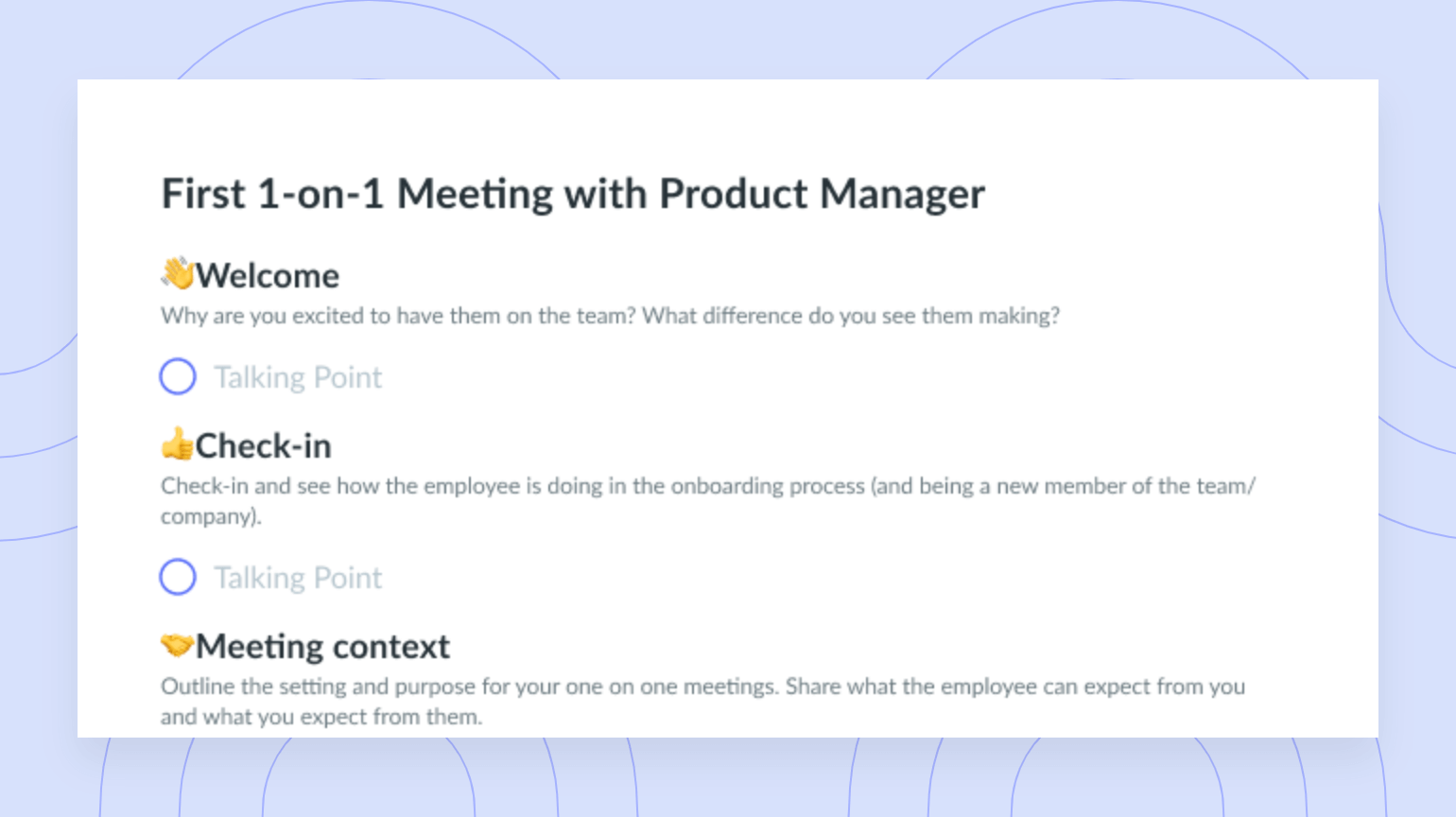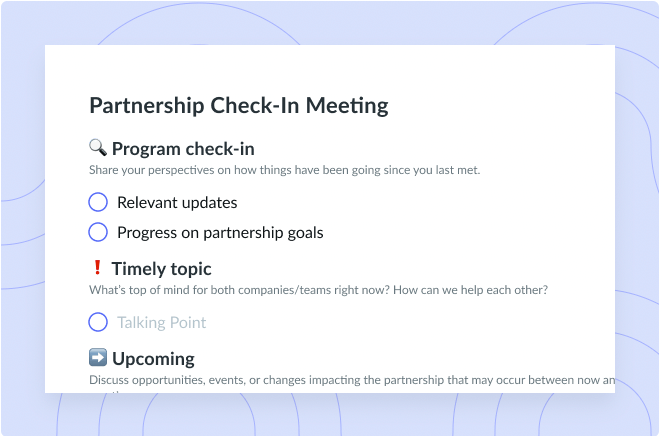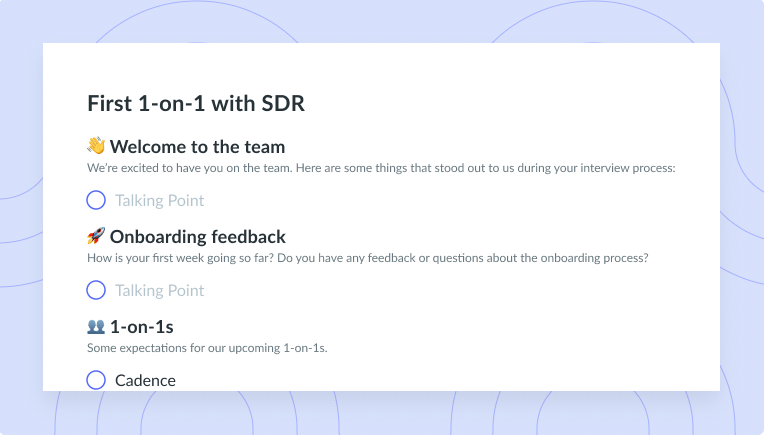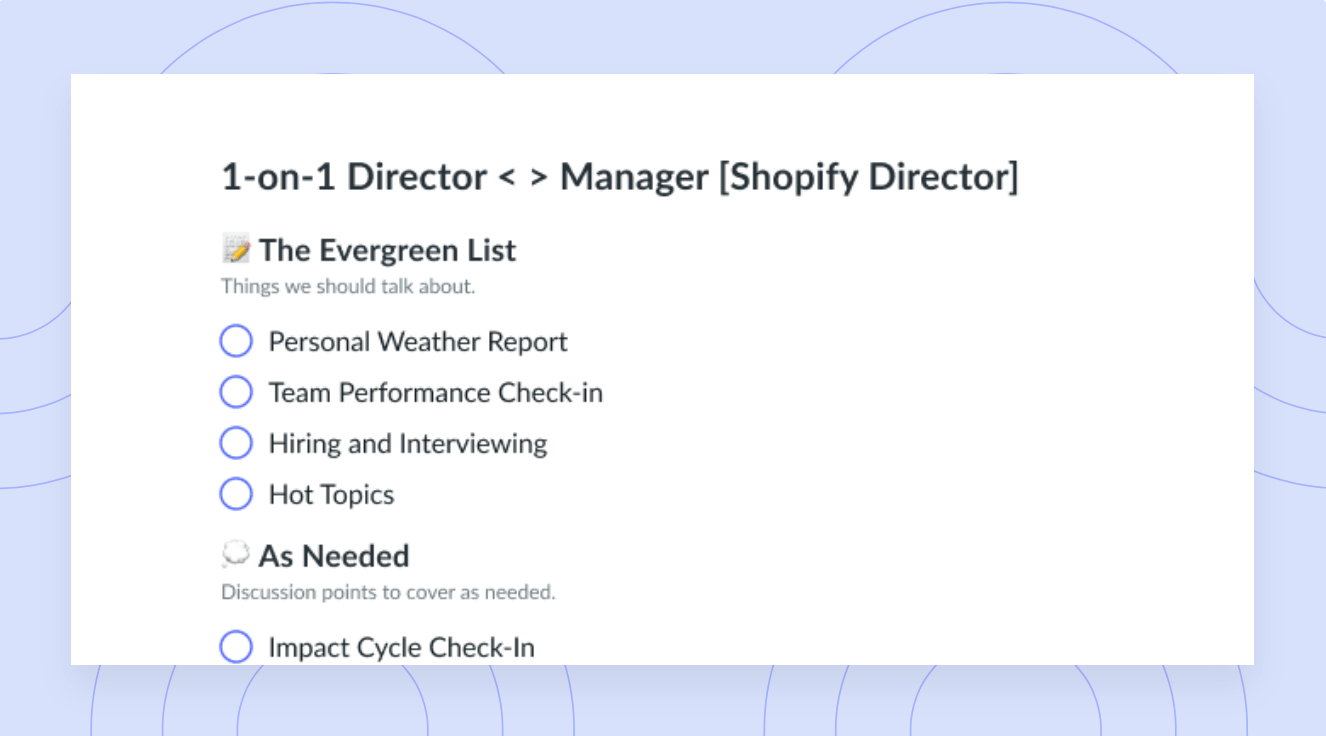10 Things I Wish I Knew as a New Manager
Are you a relatively new manager and you just don’t know where to start? Don’t worry, we’ve got you! Read on for our top 10 tips!
Most people remember that moment they first became a manager. Maybe you were sitting in a boardroom both surprised and elated when your boss told you that you were being promoted. Maybe you recall jumping for joy and celebrating with friends when you finally landed that new shiny job after a grueling interview process. Maybe there was a moment where your boss told you the company was expanding and you could finally hire a proper team. Or maybe you were like me, and you suddenly found yourself not just in charge of projects, but also in charge of people without the title to go along with it.
Regardless of your management origin story, one thing is for certain: Most of us were woefully unprepared for a career in management.
A study examining 17,000 worldwide leaders found that most managers did not receive any form of management or leadership development training until 10 years into the job. That’s 10 years of practicing management, in charge of other people’s workplace contributions and overall career trajectory while relatively unskilled and untrained. Imagine instead that you were practicing medicine or law or a skilled trade without proper training – yep, disaster.
The truth is though that most people are promoted because they have reached a level of mastery in their current job, not necessarily because they are ready for management. Whether right or wrong, much of the job really is learned while on the job. Here’s another truth: hindsight is 20:20.
Looking back now, there are so many things I wish I knew as a newbie manager.
10 things you need to know as a new manager
- Not everyone will like you
- You’ll spend a lot of time in meetings
- Lead by example
- You’re measured on your team’s performance
- People need to be managed as individuals
- You don’t just set the tasks
- Your ego is the enemy
- Feedback is to be given in the moment
- Learn when to delegate
- Dealing with “people problems”
1 Not everyone will like you – or your decisions.
Ever heard the old adage “it’s lonely at the top?” Well, sometimes it is. When you’re managing a team of people, you will need to make some tough calls and difficult decisions, and it is impossible to make everyone happy all the time.
Tips: Be transparent in your decision-making, and make your decisions based on facts, productivity, and data rather than politics. It’s totally ok to ask your team for input, but be clear and firm in making the final call. Remember, you’re not aiming to please everyone or to rule with an iron fist either – you’re aiming to inspire, motivate, and do what’s right for your people and the company overall.
2 You’ll spend a lot of time in meetings, and that’s ok
For as much flack as meetings often get, they are a mainstay in corporate workplaces. And let’s face it – you need to have meetings, but more importantly, you need to have productive meetings.
Tips: Be ruthless about which meetings you attend and which ones you decline. Ensure you’re meeting with your direct reports regularly for one-on-ones. No agenda? No meeting! Oh, and a meeting or productivity tool – like Fellow – will help you stay on track, document action items, and keep to time.

Pro tip
Use a meeting management tool like Fellow to record decisions and build a culture of transparency.

3 Lead by example
I’m sure you’ve heard the saying “do as I say, not as I do.” Yep – it’s terrible. In fact, I cannot express my dislike for this statement enough – it’s just plain wrong.
Tips: If you want your team to trust you, believe in you, and legitimately enjoy working with you, then lead by example. When you set expectations for your team, make sure you’re meeting those expectations too. And, if you ever fall short, say so! There is no harm in acknowledging that you, in fact, could have done better.
4 You’re measured on your team’s performance – you’re no longer an individual contributor
No longer being an individual contributor was one of the most difficult things for me to wrap my head around when I first became a manager. I found it challenging that my task list no longer said things like “write press release” but rather things like “ensure press release gets out/approve”. During year-end performance reviews it was tough for me to outline and assess my accomplishments because much of what I was doing was simply managing and motivating people, and they were the ones churning out deliverables and completing most of the measurable work. Then it hit me – I’m responsible for their performance. Their successes are my successes too.
Tips: Get comfortable with setting the strategy and the direction for your team, monitoring progress, giving feedback and when necessary, staying the heck out of the way. Don’t get pulled down into the weedy details you once loved when you were an individual contributor. Give your team necessary tips, guidance, and instructions and help them grow. Their successes and failures are yours too.
5 People need to be managed as individuals
Unfortunately, many managers start their careers thinking “I’m going to be firm but fair. I’m going to treat everyone equally. No special treatment.” While their hearts are probably in the right place, this kind of thinking can go sideways fast.
The truth of the matter is that your team is made up of individuals – each with their own career goals, personalities, skill sets, and hardships. You cannot treat everyone exactly the same and expect amazing results.
Tips: Get to know your people. I’ll say it one more time in case you didn’t catch that: Get to know your people. As a manager, it is your job to help your employees develop their skills, understand their weaknesses, overcome their challenges, and support them when life just gets tough. Some people will indeed need more from you than others and that’s ok, but it’s impossible to manage your team well while managing everyone in exactly the same way.
6 You don’t just set the tasks, you create the culture
When you become a manager, you are indeed responsible for your team and the projects they complete, but you’re also responsible for the overall team culture, which can generally be defined as a shared set of values, beliefs, attitudes and behaviours. If team members are operating with different sets of values, it will be challenging for them to be on the same page and it very well may cause a rift to form on the team.
Tips: Work with your people to establish a set of team values and agree to hold one another accountable. Work collaboratively and ask questions like ‘what is important to us as a team? What do we value as a group? What does this value look like in action?’
7 Your ego is the enemy – listen more than you talk
As I’ve written about before, ego is the enemy of great leadership. The bigger your ego is, the more you are at risk of losing touch with your employees. Quite simply: if you have a big ego, your employees may find you unapproachable and unrelatable.
Tips: Listen more than you talk – especially when there is a problem, or if an employee is struggling with a personal issue and attempting to confide in you. Do not try to fill awkward silences with a relatable story, and do not try to say something profound and noble. Just listen and leave your ego at the door.
8 Feedback is to be given in the moment, and difficult conversations are part of the job
One huge mistake many newbie managers make is to wait for the “right moment” to give feedback, like at the next one-on-one or even a performance review. This is a big no-no! Do you give your soccer teammate a huge high-five three weeks after a game-winning goal? No. You high-five in the moment. The same goes for feedback, even feedback that might be difficult.
Tips: Whether you’re giving praise or giving criticism, it is vital to prepare for the conversation. Do not wing it. Make sure any difficult conversations occur privately and in-person (not via email or text). Also, remember – feedback is a two-way street. It’s important to always give your direct reports a chance to share how they’re feeling too and provide you with feedback as well.
9 Learn when to delegate and when you just need to say no
One of the things I still struggle with as a manager is when to delegate and when to just say no. It’s true that sometimes it’s just faster to “do it yourself,” but then arguably you take away a fantastic learning opportunity from your direct report. In a similar vein, sometimes your team is just so overloaded that adding one more request from the higher-ups to the team’s workload might just make your team crack under pressure.
Tips: Get comfortable understanding and managing the workload of your team. Know what’s on the go, what’s in the pipeline, what’s critical to the company strategy, and what can be dropped if needed. Also understand your people, their strengths, their weaknesses, and harness any learning opportunities by delegating work, coaching, and providing feedback. It’s also vital to know when your team is overstretched. Don’t be afraid to push back on your own boss, deferring new assignments to a later date or reorganizing deadlines as needed.
10 A big part of the job is dealing with “people problems”
Many first-time managers know they are going to be managing processes, deliverables, and timelines but they fail to realize that a large part of management really is managing people – and the plethora of stuff that comes along with that: personalities, personal crises, egos, and team conflicts.
Tips: Don’t be afraid to tackle people’s problems head-on. Get to know your employees and understand what makes them tick and what’s important to them. When there is a conflict, listen to your employees, understand, and process the problem before suggesting a solution. It’s also a good idea to further educate yourself on how to handle difficult situations in the workplace and how to communicate effectively – whether by reading, listening to podcasts, or taking courses.
With practice you will get better, but there is no such thing as a “perfect” manager.
In closing let me just say this: Being a manager certainly gets easier over time and with practice, but like any skill, you do need to work at it. You will make mistakes, all good managers do – but failure is not to be feared. Instead, humbly learn from your failures, pick yourself up, dust yourself off, and keep on going.





























